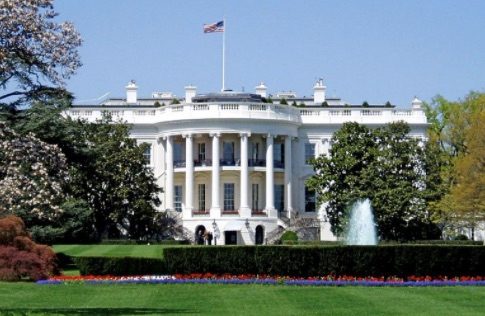众所周知,总统政府之间的过渡期很敏感。这一个已经混乱了。

【原文】
The ongoing chaos in the aftermath of the November 2020 presidential election has no precedent in modern U.S. history.
Against the grim backdrop of skyrocketing coronavirus cases, outgoing U.S. President Donald Trump has let loose a barrage of tweets throughout the days and nights following the election, promoting a baseless conspiracy theory that the race was rigged against him by a nationwide voter fraud scheme.
To be clear, there was no such scheme. Trump’s Democratic political rival, President-elect Joe Biden, won decisively in both ballots and electoral college votes. And Trump’s own Department of Homeland Security released a statement describing the November 2020 election as “the most secure in American history.”
Nevertheless, Trump has as of Nov. 13, 2020, refused to acknowledge the reality of his electoral loss and has pumped out disinformation on Twitter, refusing to concede while executive branch agencies have failed to cooperated with Biden’s transition team.
The chaos has been compounded by public officials’ actions and use of social media to spread disinformation, putting the platforms’ election integrity policies under the microscope.
Daniel Kreiss, director of media and communication at the University of North Carolina, told us that focusing criticism of disinformation on the social media platforms appears non-partisan, making it easier for journalists to point to. But noting Trump’s failure to concede defeat, and the near-unity in Republican legislators endorsing the lie that mass-scale voter fraud took place and failing to acknowledge Biden as president-elect, Kreiss said the problem originates upstream from the platforms.
“The GOP has generally failed to embrace the legitimacy of the president-elect and have been willing to float questions about voter fraud — it’s all over the place, coming from GOP party elites themselves,” Kreiss said. “It’s my opinion that Facebook and Twitter are downstream from this much greater political crisis. At the end of the day, if [Senate Majority Leader] Mitch McConnell refuses to come out and say Joe Biden is the president-elect, and the election was free and fair, there’s nothing Facebook and Twitter can do about it.”
We contacted McConnell’s office with questions about why Republicans have largely failed to acknowledge Biden as president-elect, despite Trump’s own administration stating that the 2020 election was secure. We didn’t get a response in time for publication.
Julia Hellwege, associate professor of political science at the University of South Dakota, told us in a phone interview that she is concerned with the chipping away of norms and traditions that many in the U.S. have taken for granted for decades, but which buttress crucial aspects of democracy like the peaceful transfer of power.
“Under normal circumstances there would be a loser and a concession speech and we move on with our lives, not because they are written in to our Constitution, but because they are norms that are part of American and democratic values,” Hellwege said. “When we don’t see this and instead we get uncertainty, that to me signals an erosion of these norms and values.”
That erosion, Hellwege said, is dangerous.
“We haven’t seen it in this country, but we have seen it in other countries,” Hellwege added. “It’s often what we see in countries that descend away from democratic systems. It’s those small things that are the first to go — democracy chips away slowly.”
It’s not just norms like concession speeches that got chipped away in 2020. Aside from driving the “voter fraud” disinformation campaign, Trump’s White House has refused to cooperate with Biden’s transition. Until now, a federal agency called the General Services Administration was unknown to many Americans. But it shot into the public consciousness when its administrator, Trump appointee Emily Murphy, refused to sign a letter of ascertainment that would allow the Biden team access to administration personnel and millions of dollars in funds to begin the transition process.
With coronavirus cases raging, Murphy’s refusal to perform what was up until now an unremarkable bureaucratic task raised fears that her actions could hamper the incoming administration’s efforts to deal with the ongoing public health crisis and endanger national security.
“We are in the midst of the first presidential transition in the modern era to be conducted remotely. We are already facing pretty significant challenges, not just with the coronavirus pandemic, but with the fact that transitions in government are known to be periods of time when the threats of attacks from foreign actors are heightened,” said Donald Sherman, deputy director of the government watchdog non-profit Citizens for Ethics in Washington. “It’s critically important for the national security apparatuses of the outgoing and incoming administrations to be working together in concert and communicating to ensure our national security infrastructure can make the decisions that need to be made and the president can make the decisions that need to be made on day one.”
The Trump administration’s actions in this regard are “wildly irresponsible,” Sherman said, and what Murphy is doing is “reckless.”
We reached out to the General Services Administration to ask what the reason was for the delay in allowing Biden’s transition team access to funds and personnel, and a timeline for when that access would be granted. We received no response in time for publication.
Help Supercharge Snopes For 2020
We have big plans. We need your help.